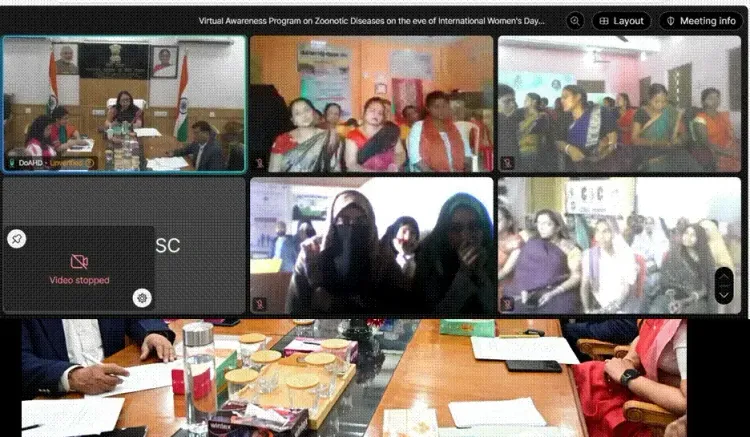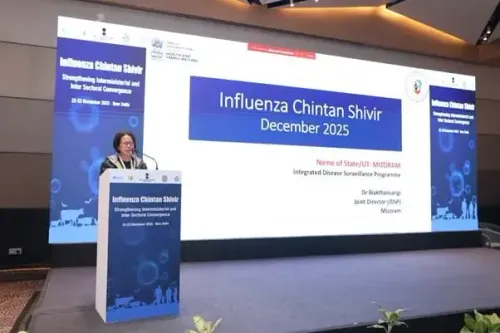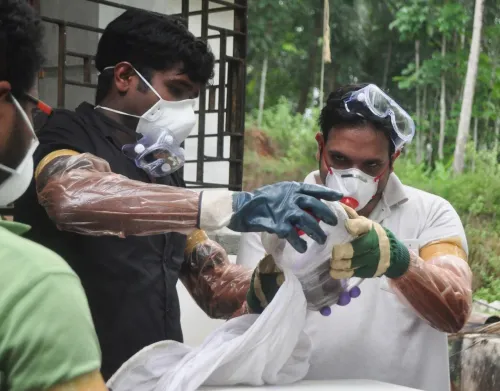Awareness Campaign on Zoonotic Diseases Reaches Over 100,000 Women Livestock Farmers

Synopsis
Key Takeaways
- Over 1 lakh women farmers educated on zoonotic diseases.
- Emphasis on clean milk production and ethnoveterinary medicines.
- Importance of women in dairy cooperative societies.
- Encouragement to utilize central government schemes.
- Focus on preventing zoonotic diseases for productivity.
New Delhi, March 8 (NationPress) On the eve of International Women’s Day, the Department of Animal Husbandry and Dairying (DAHD), part of the Ministry of Fisheries, Animal Husbandry and Dairying, reported that over 1 lakh women involved in livestock farming have been educated about various zoonotic diseases.
Through a virtual program, these women received insights on clean milk production and the importance of ethnoveterinary medicines in disease prevention, presented by experts and veterinarians.
“Women are vital in Dairy Cooperative Societies (DCS),” remarked Alka Upadhyaya, Secretary of the DAHD, during the virtual session.
“The determination shown by women dairy farmers is commendable; they have been able to organize themselves through Farmer Producer Organisations (FPOs), Community Linked Farmers (CLFs), and Self-Help Groups (SHGs) where DCS were not available,” Upadhyaya noted.
“Despite the significant contribution of women to the dairy industry, it’s essential for them to leverage benefits from central government schemes in the sector,” she continued, emphasizing that programs for goat and sheep rearing can provide women farmers with good returns at minimal costs.
Using the Covid pandemic as an example, she highlighted the necessity of preventing zoonotic diseases to avoid animal-to-human disease transmission and productivity loss.
The virtual meeting saw participation from women across 21 States and Union Territories. Approximately 2,050 camps were organized by Village Level Entrepreneurs (VLEs).
“Women farmers should emphasize the connection between animal husbandry practices and public health,” stated Varsha Joshi, additional secretary of DAHD.
She stressed the importance of hygienic, sustainable practices in the industry and discussed the critical nature of clean milk production and biosecurity measures to prevent disease transmission from animals to humans.
Recently, the Union Cabinet, led by Prime Minister Narendra Modi, approved the update of the Livestock Health and Disease Control Programme (LHDCP) with a total budget of Rs.3,880 crore.
This scheme consists of two components: the National Animal Disease Control Programme (NADCP) and Pashu Aushadhi.
It aims to enhance livestock productivity, which is negatively affected by diseases such as foot and mouth disease (FMD), brucellosis, peste des petits ruminants (PPR), cerebrospinal fluid (CSF), and lumpy skin disease.










